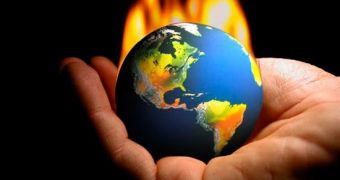This year's round of UN climate talks ended this past Saturday and, as reported, environmentalists were quick to express disappointment in their outcome.
Samantha Smith, the current leader of the World Wildlife Fund's Global Climate and Energy Initiative, took it to herself to explain what went wrong during these negotiations and what the world leaders taking part in them should have done different.
In a press release on the matter, the environmentalist argues that, despite clear signs that man-made climate change and global warming threaten to affect both the natural world and human society, the Warsaw negotiators have failed to take measures to tackle these phenomena.
The way Samantha Smith sees things, this happened either because they did not prepare enough for this meeting, or because they are clueless about what needs to be done.
“The climate change threat has given us a clear choice – a future where destructive weather events like Typhoon Haiyan become the norm, or a world powered by clean renewable energy,” Samantha Smith explains.
“Negotiators in Warsaw were clearly unprepared or unable to take us towards a better future. They showed up unprepared to negotiate in good faith, particularly on issues affecting the most vulnerable people,” she adds.
What bothered Samantha Smith and her fellow environmentalists first and foremost was Japan's announcement that it would not reduce emissions as promised, Australia's decision to end its carbon tax and Canada's congratulating the latter on its new climate policy.
“Negotiators in Warsaw should have used this meeting to take a big and critical step towards global, just action on climate change. That didn’t happen,” she says.
Furthermore, “The lack of urgency shown by governments in this process has been sickening.”
The World Wildlife Fund and other green groups hope that things will go better next year, when the world will gather in Lima, Peru in preparation for a Paris meeting in 2015, which is expected to lead to a global agreement concerning the best ways to deal with climate change and global warming.
“By the time we get to next year’s meeting in Lima, we urgently need to have political will, real commitments, and a clear path to a comprehensive and fair agreement in Paris 2015, where a new global agreement on climate change has to be signed.”
“Heads of state will need to come to the UN Leaders’ Summit called by the Secretary General next September with new commitments that match the scientific evidence of climate change. Heads of state also will need to engage directly in the negotiation process going forward, especially in Lima and Paris, if that’s what it takes,” Samantha Smith maintains.

 14 DAY TRIAL //
14 DAY TRIAL //